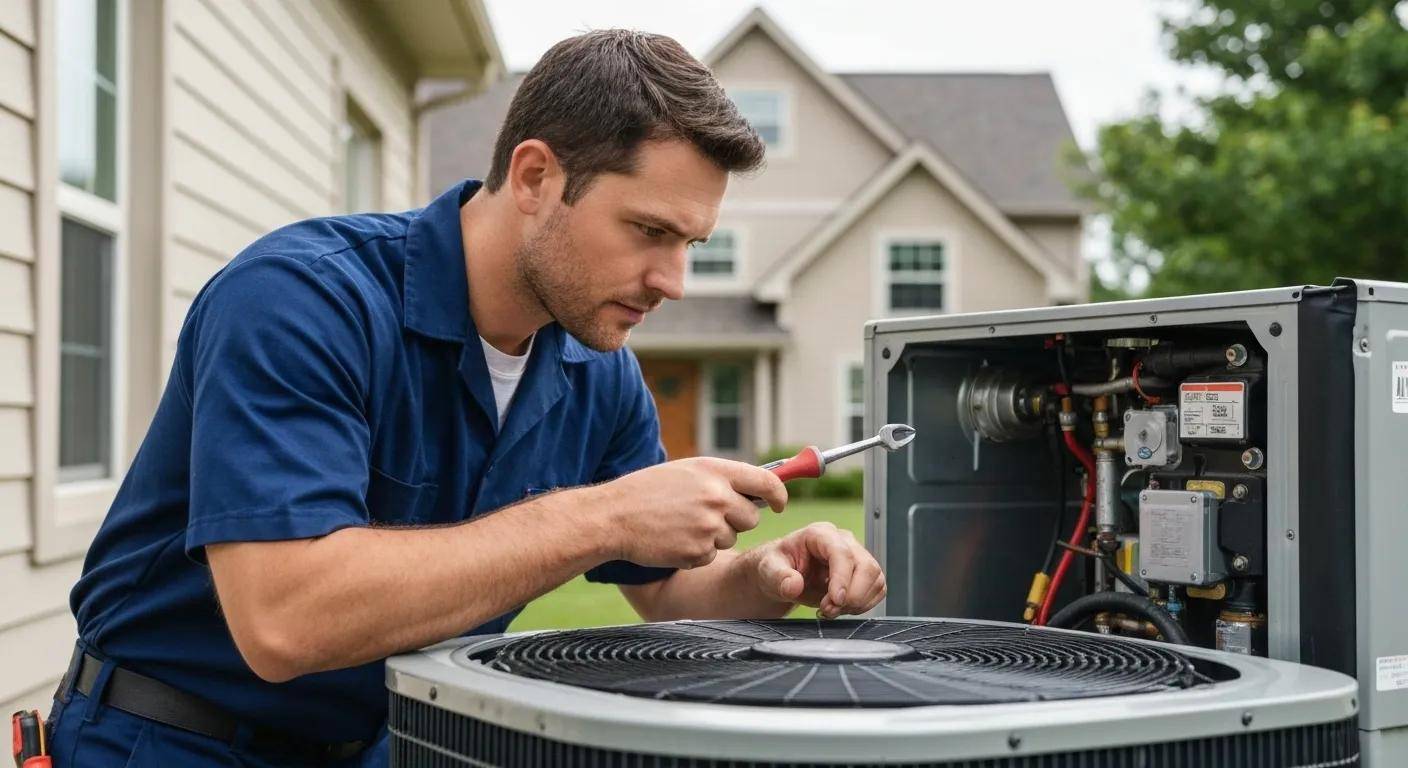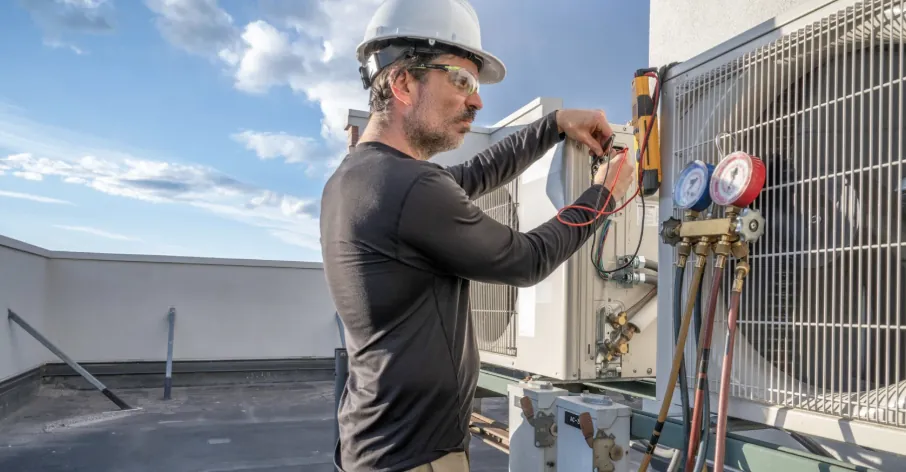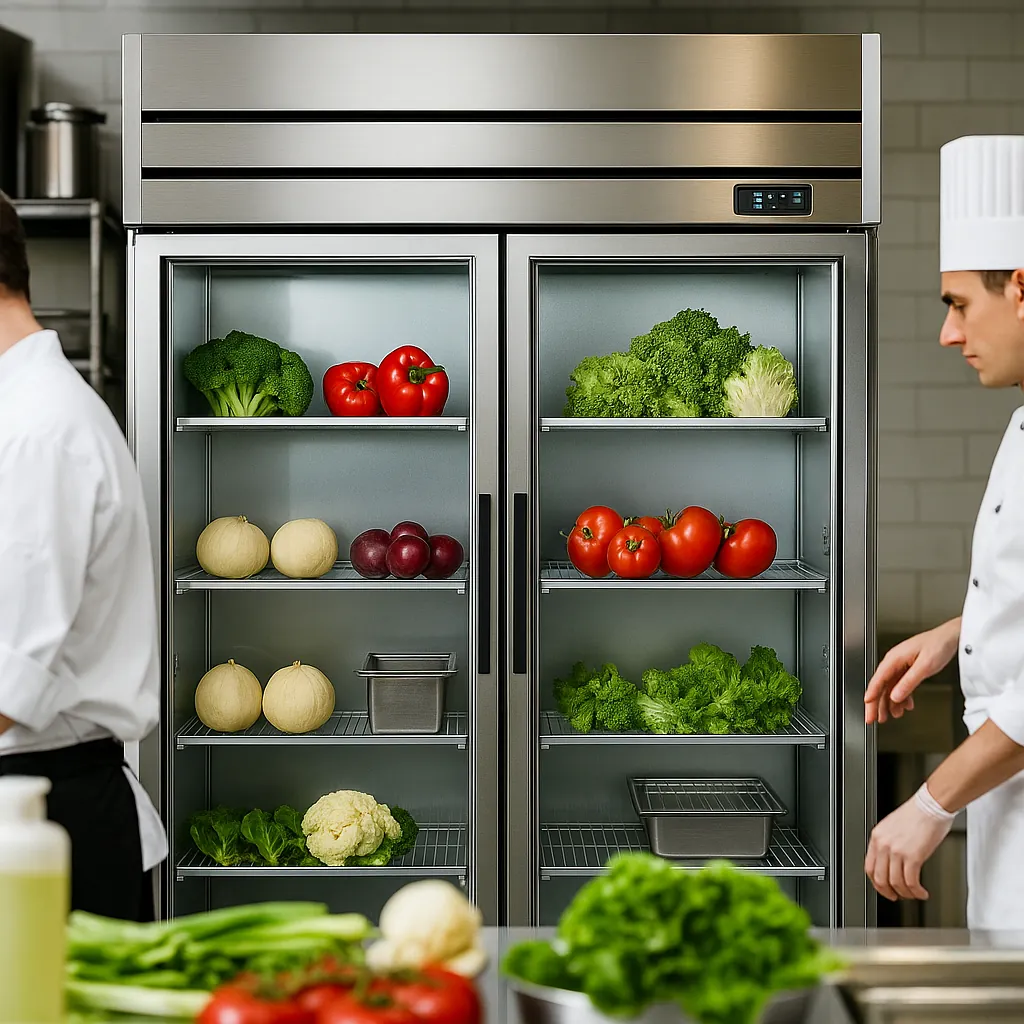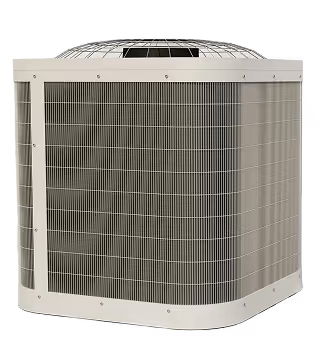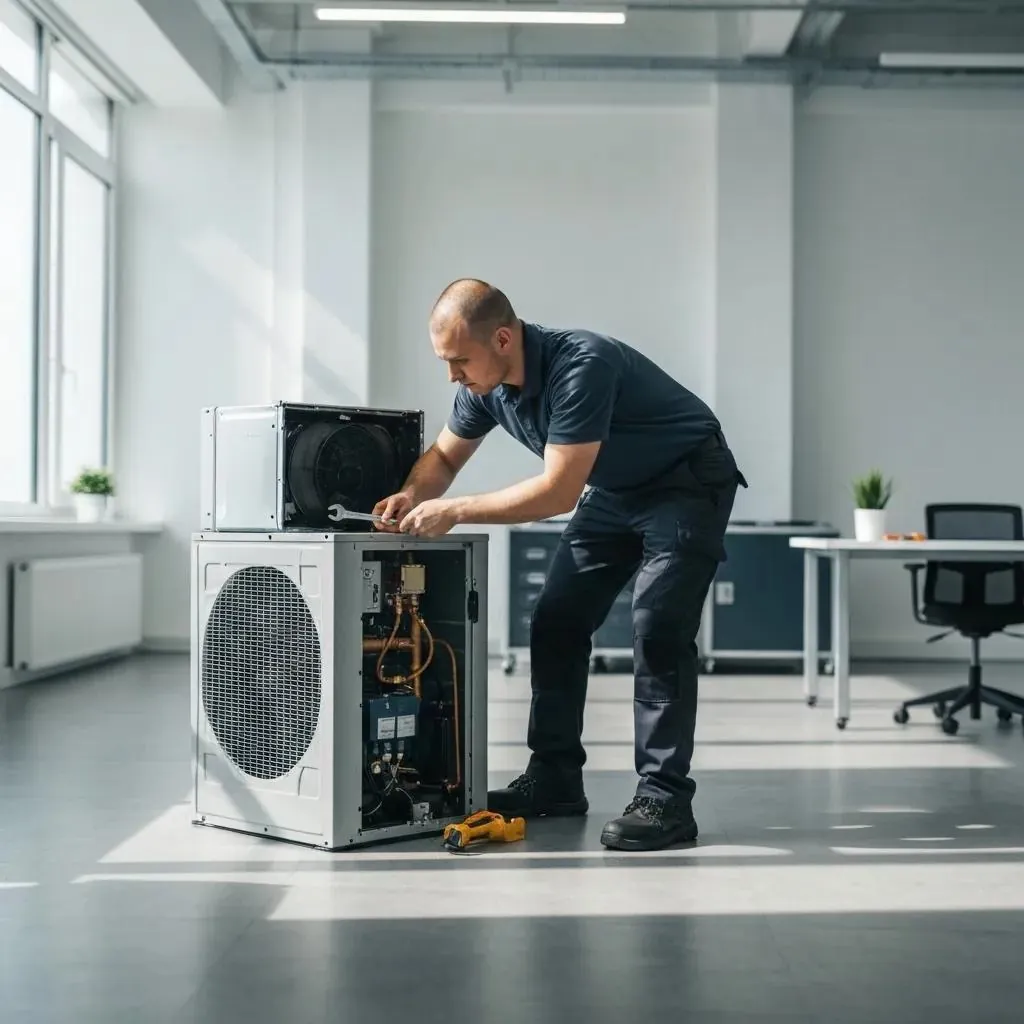
Unexpected commercial HVAC system failures can hit your business hard, leading to costly downtime and inflated energy bills. A Comprehensive Commercial HVAC Maintenance Checklist Every Business Needs for Optimal Performance and Cost Savings is your roadmap to keeping equipment running smoothly, ensuring a comfortable environment for everyone, and maximizing your operational budget. This guide will walk you through why proactive maintenance is crucial, what key tasks to include on your checklist, how to schedule services seasonally, the advantages of bringing in the pros, how smart technology can help, and the clear financial benefits. Partnering with experts like Liberty HVACR – HVAC, Refrigeration, and Appliance Repair Services means you get customized plans, inspections that meet all industry standards, and dependable support for businesses throughout NY, NJ, and PA.
Why Is Commercial HVAC Preventative Maintenance So Important for Your Business?
Preventative maintenance for your commercial HVAC systems involves regular check-ups, thorough cleaning, and precise adjustments designed to head off unexpected breakdowns and keep your climate control running efficiently. By taking care of your equipment proactively, your business can cut down on wasted energy, extend the life of your systems, and ensure healthier indoor air quality.
Here are some of the key advantages:
- Boosted energy efficiency thanks to clean filters and perfectly calibrated controls
- Lower repair expenses by catching potential issues early
- Extended equipment lifespan through proper lubrication and mechanical tune-ups
The Upside of HVAC Preventive Maintenance
Preventive maintenance helps pinpoint problems fast, making your HVAC system perform at its best. When an HVAC technician performs preventive maintenance on your system, they meticulously check every component for potential issues. If they discover minor problems, your technician addresses them promptly, preventing them from becoming major headaches.
Consistent upkeep helps identify and resolve small issues before they snowball into expensive problems, saving you from costly repairs and disruptive downtime.
This proactive approach lays the groundwork for significant cost savings and uninterrupted business operations. Let's dive into how it boosts energy efficiency and minimizes risks.
How Does Preventive Maintenance Boost Energy Efficiency and Cut Costs?
Preventive maintenance enhances energy efficiency and trims operational expenses by ensuring your heating and cooling components are always operating at their peak potential.
- Replacing Filters clears airflow blockages, reducing the energy your fans consume.
- Cleaning Coils restores efficient heat transfer, meaning your system runs for shorter periods.
- Checking Refrigerant Levels prevents undercharged or overcharged states that drive up energy use.
These essential steps work together to lower your utility bills and prove the value of your maintenance investment through tangible cost savings and a more stable system.
The Advantages of Preventive Maintenance for Commercial HVAC Systems
Preventive maintenance offers significant benefits for commercial HVAC systems, including improved efficiency, extended equipment lifespan, and reduced operating costs. "Our commitment to our customers includes ensuring their commercial HVAC systems are always in top working order and clean, which extends the life of their equipment, maintains safe and healthy air quality, and delivers greater energy savings," shared Luke Klein, Service Technician.
Preventive maintenance is key to boosting efficiency, extending equipment life, and lowering costs for your commercial HVAC systems.
What Are the Dangers of Skipping HVAC Maintenance in Commercial Buildings?
When commercial HVAC systems are neglected, businesses face a host of serious risks:
- Unexpected Downtime due to sudden equipment failures
- Skyrocketing Energy Bills from clogged components and miscalibrated controls
- Frequent Emergency Repairs that come with premium prices for labor and parts
- Shortened Equipment Lifespan caused by accelerated wear and corrosion
- Poor Indoor Air Quality leading to occupant discomfort and health concerns
Addressing these risks through regular inspections significantly cuts down on reactive repair costs and operational disruptions.
How Does Regular Maintenance Extend the Life of Your HVAC Equipment?
Regular maintenance helps your HVAC equipment last longer by preventing undue stress on components and ensuring everything operates as it should. Cleaning coils and filters, tightening electrical connections, and lubricating motors all work to reduce friction and prevent overheating. Over time, these practices delay the need for costly unit replacements and maximize your return on investment.
Why Does HVAC Maintenance Lead to Better Indoor Air Quality?
Indoor air quality gets a major boost when HVAC maintenance removes the dust, mold, and allergens that tend to build up in filters, coils, and ductwork. Clean components and balanced airflow help limit airborne contaminants, supporting the health of your occupants and reducing potential liability related to air quality complaints.
What Are the Must-Have Items on a Business HVAC System Maintenance Checklist?
A comprehensive business HVAC system checklist covers every critical subsystem to ensure peak performance, safety, and compliance.
Your Commercial HVAC Maintenance Checklist Guide
An HVAC maintenance checklist should provide a thorough list of every system or component needing service, along with details on when it was last serviced and when it's due for its next check. Typically, commercial HVAC maintenance covers: Air conditioning systems; Heat pumps; Electric heaters; Gas furnaces; Dual-fuel heat pump furnaces.
How Often Should You Inspect and Replace Air Filters?
Air filters should be checked monthly and replaced every 1–3 months, depending on your specific environment and how many people use the space. Buildings with high traffic or dusty industrial settings might need more frequent changes, while lightly used offices can often get by with quarterly replacements. Keeping your filters fresh is key to maintaining good airflow and energy efficiency.
What Are the Steps for Cleaning and Maintaining Coils and Refrigerant Levels?
Effective coil and refrigerant maintenance involves these crucial steps:
- Powering Down the Unit to ensure safe access for servicing
- Applying Coil Cleaner and thoroughly rinsing away debris from both evaporator and condenser coils
- Measuring Refrigerant Pressure to confirm the system has the optimal charge
- Adjusting Refrigerant Levels according to manufacturer specifications
- Using Electronic Detectors to verify there are no refrigerant leaks
These procedures are vital for restoring full cooling capacity and preventing strain on your compressor.
How Should Electrical Connections and Thermostats Be Checked?
Electrical system maintenance includes:
- Inspecting Terminal Connections on contactors and relays for tightness
- Testing Voltage and Amperage against manufacturer specifications
- Examining Control Wiring for any signs of insulation damage
- Calibrating Thermostats to ensure they meet industry-standard accuracy
Thorough electrical checks are essential for reducing fire hazards, preventing intermittent system failures, and ensuring consistent operation.
Why Are Ductwork and Drain Line Inspections So Important?
It's crucial to inspect ductwork and condensate drains for any blockages, signs of corrosion, or leaks. Clearing out debris helps restore proper airflow balance and prevents microbial growth in drain pans. Well-maintained duct systems and clear drains are vital for overall system efficiency and protect your building's structure from potential water damage.
How Are Belts, Motors, and Blower Components Maintained?
Belts, motors, and blower assemblies require regular attention, including:
- Adjusting Belt Tension to prevent slippage
- Lubricating Bearings to minimize friction
- Checking Alignment to ensure balanced operation
- Performing Vibration Analysis to detect early signs of wear
Consistent mechanical upkeep helps reduce failures related to vibration and promotes reliable airflow.
How Should Businesses Schedule Seasonal HVAC Maintenance for Optimal Performance?
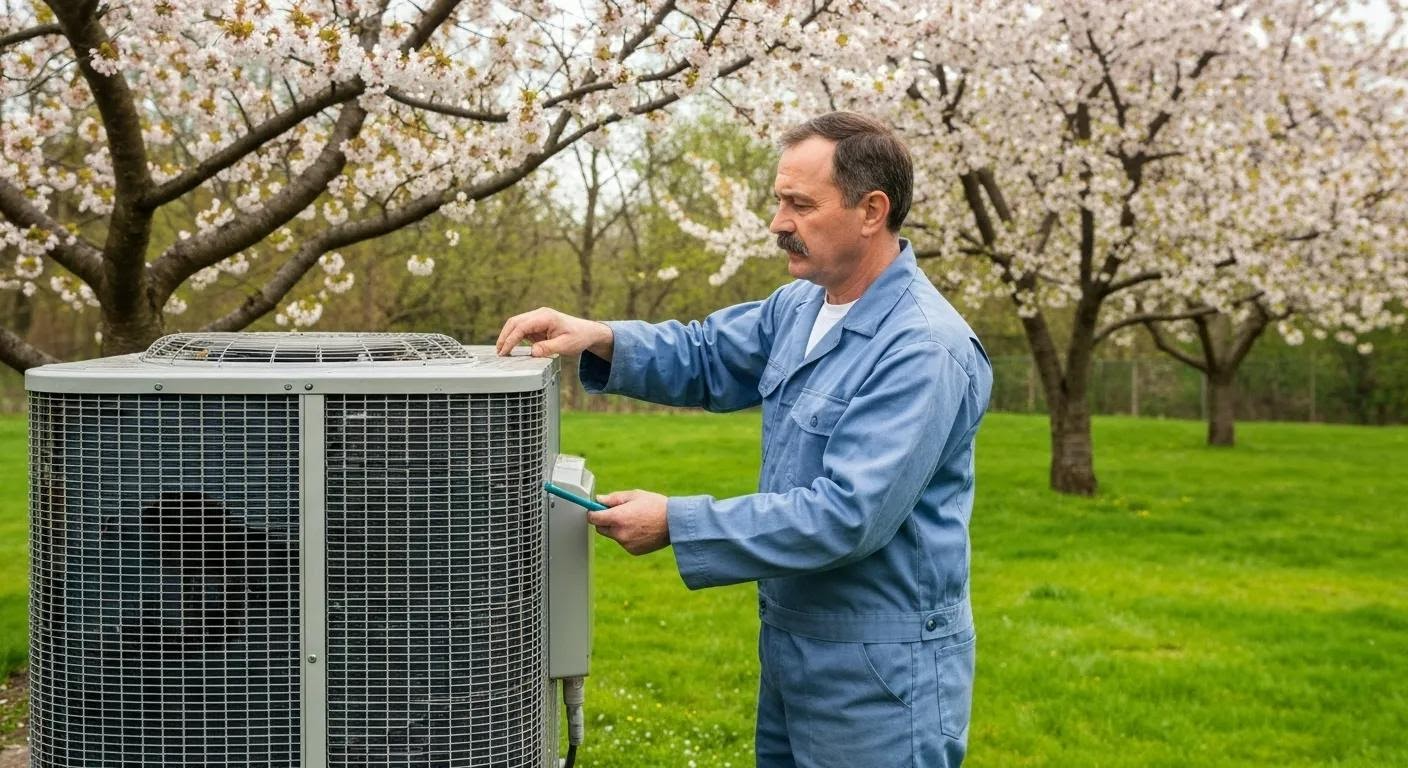
Scheduling maintenance based on the season ensures your system is prepped and ready for the specific demands of the weather. A well-planned seasonal approach balances cooling and heating tasks to reduce strain and maximize performance throughout the year.
Your Go-To HVAC Preventive Maintenance Checklist
Use this checklist to cover all the essential bases for your HVAC preventive maintenance program, whether it's for spring/summer or fall/winter, ensuring your HVAC equipment is ready for the seasonal conditions. Spring/Summer HVAC Preventive Maintenance Checklist: Clean all filters and replace them if necessary. Clean the condenser and evaporator air conditioning coils.
Seasonal maintenance tasks are critical for preparing your HVAC system for the demands of different weather conditions, ensuring it operates efficiently and preventing unexpected failures.
What Are the Key Spring and Summer HVAC Maintenance Tasks?
Key spring and summer HVAC maintenance tasks include inspecting outdoor condenser coils and testing refrigerant circuits each spring, replacing air filters quarterly, and lubricating blower belts and motors annually. These steps help maintain cooling performance, improve efficiency, and reduce the risk of breakdowns during peak seasons.
What Are the Essential Fall and Winter HVAC Maintenance Requirements?
Essential fall and winter HVAC maintenance includes inspecting heat exchangers in furnaces or boilers, testing safety controls such as ignition and gas valves, calibrating thermostats across all zones, and checking condensate traps and drains quarterly. These tasks ensure safe, efficient, and reliable heating performance during the colder months.
How Does Seasonal Maintenance Prevent Downtime and Costly Repairs?
Seasonal maintenance helps prevent costly emergency repairs and unexpected downtime by identifying wear and inefficiencies before extreme temperatures put excessive strain on system components. Regular tune-ups also help maintain manufacturer warranties and keep your energy usage on track.
What Are the Advantages of Professional Commercial HVAC Service and Maintenance Plans?
Professional service plans bring expert technical knowledge, consistent inspection routines, and rapid responses to any emerging issues. Expert technicians adhere to industry best practices to keep your systems compliant and running reliably.
How Do Certified HVAC Technicians Ensure Compliance and Protect Your Warranty?
Certified technicians follow manufacturer-approved procedures, maintain detailed service logs, and rigorously test safety controls. This adherence to standards protects your equipment warranties, minimizes your liability, and provides documented proof of diligent maintenance.
What Should Businesses Look For When Choosing a Local HVAC Service Provider?
When you're selecting a service provider, make sure to verify:
- Certifications and Licensing that align with all industry regulations
- Proven Experience with Commercial Systems across a variety of building types
- Local Presence and Quick Response Times within NY, NJ, and PA
- Clear and Transparent Service Agreements that detail all services and costs
These factors ensure you're building a reliable partnership and will receive prompt, effective support.
How Do Service Contracts and Customized Maintenance Plans Benefit Your Business?
Service contracts and tailored maintenance plans offer:
- Scheduled Inspections that fit seamlessly with your operational calendar
- Predictable Budgeting through fixed fees and bundled service packages
- Priority Scheduling for any urgent service calls
- Scalable Solutions that can adapt as your facility grows
Customized plans allow you to fine-tune maintenance frequency and scope to perfectly match your facility's unique needs.
How Can Smart HVAC Technology Elevate Preventative Maintenance for Businesses?
Smart HVAC technology uses connectivity and advanced data analytics to optimize maintenance schedules and energy management. Real-time monitoring can detect performance anomalies before they become significant problems.
What Role Do IoT and AI Play in Predictive HVAC Maintenance?
IoT sensors continuously gather performance data—like temperatures, pressures, and vibration levels—while AI algorithms analyze this information to predict potential component failures. Early alerts allow for targeted servicing, which can reduce unplanned outages by as much as 30 percent.
How Do Smart Thermostats and Connected Systems Improve Energy Management?
Smart thermostats and building management platforms dynamically adjust temperature settings based on occupancy, weather forecasts, and even real-time utility rates. Automated scheduling and the ability to override settings remotely help minimize energy waste and maintain consistent comfort levels.
What Are the Cost Savings and Downtime Reductions from Smart HVAC Solutions?
By combining predictive analytics with automated controls, smart HVAC solutions deliver impressive results:
- Up to 20 percent in energy savings through optimized system operation
- 30 percent fewer emergency repairs thanks to early anomaly detection
- Extended equipment lifespan by avoiding periods of peak operational stress
These improvements lead to a strong return on investment and ensure your business operations run without interruption.
What Is the Cost and Return on Investment (ROI) of Commercial HVAC Maintenance?
Routine maintenance provides measurable returns by reducing energy consumption, preventing major repairs, and maximizing the lifespan of your equipment.
How Much Can Businesses Save on Energy Bills with Regular HVAC Maintenance?
Businesses that implement consistent maintenance practices can see savings of 5–20 percent annually on their heating and cooling expenses.
The Value of Regular HVAC Maintenance: Costs vs. Savings
The average cost for HVAC maintenance typically falls around $250 per visit, or approximately $500 annually. These ps can vary for individual homes based on system size, type, and location. Some companies offer maintenance agreements that can lower the annual cost per visit, provide service discounts, and grant priority scheduling.
What Are the Typical Costs for Commercial HVAC Preventative Maintenance Plans?
Commercial preventative maintenance plans generally range from $2,000 to $10,000 per year. This cost depends on factors like system size, how often inspections are performed, and the scope of services included. Customized agreements ensure costs align with your business budget and risk tolerance.
How Does Maintenance Reduce Emergency Repair Expenses and Downtime?
Maintenance helps cut down on emergency repair costs and downtime by identifying worn parts, refrigerant leaks, and control issues before they lead to a system failure. Catching these problems early avoids the expedited charges for parts and premium labor rates that often come with reactive repairs.
What Are the Most Common Questions About Commercial HVAC Maintenance?
Businesses often seek clear answers regarding different types of maintenance, service frequency, and how to customize their plans. Having these questions answered streamlines decision-making and supports proactive system care.
What Are the Four Types of HVAC Maintenance Every Business Should Know?
The four fundamental categories of maintenance are:
- Daily/Weekly Checks—Basic operational checks and filter status inspections.
- Preventative Maintenance—Scheduled cleaning, adjustments, and minor repairs.
- Seasonal Maintenance—Pre-season tune-ups to ensure readiness for cooling and heating demands.
- Predictive Maintenance—Data-driven analysis using IoT and AI to forecast potential issues.
How Often Should Commercial HVAC Systems Be Serviced?
Commercial systems typically require biannual servicing, once before the cooling season and again before the heating season. Monthly filter checks are also recommended. Facilities that are used heavily or are mission-critical might benefit from quarterly or even more frequent service visits.
Why Is an HVAC Maintenance Checklist Essential for Businesses?
An HVAC maintenance checklist provides a structured approach that guarantees consistent service, ensures regulatory compliance, minimizes downtime, and optimizes energy performance across all your system's components.
What Should Be Included in a Comprehensive Commercial HVAC Maintenance Checklist?
A complete checklist should cover the inspection and servicing of: air filters, coils, refrigerant charge, electrical connections, thermostats, ductwork, condensate drains, belts, motors, and safety controls—addressing every element that impacts performance and reliability.
How Can Businesses Tailor Their HVAC Maintenance Plans?
Businesses can customize their maintenance plans by adjusting how often inspections are performed, integrating IoT-based monitoring solutions, bundling repair services, and scheduling service appointments around operational hours to minimize any disruptions.
Effective maintenance planning directly translates to reliable climate control and significant cost efficiencies, providing a complete strategy for superior commercial HVAC performance. Contact us today for a free quote or to schedule a service appointment with Liberty HVACR – HVAC, Refrigeration, and Appliance Repair Services to safeguard your investment, maximize your energy savings, and ensure uninterrupted comfort for your team.
Why Call a Professional?
Don’t wait for a minor issue to become a major hassle. If you notice any of these signs, schedule a professional repair service to keep your appliances running smoothly and efficiently.

.avif)
